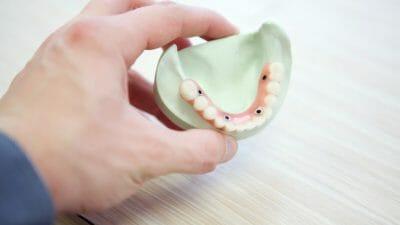Losing teeth can create multiple issues. Aside from making one appear older and unattractive, gaps can cause other teeth to shift into that empty space or lead to jaw deterioration. Dental bridges offer an effective solution for replacing missing teeth. This treatment uses an artificial tooth that sits between two crowns abutting neighboring teeth known as abutment teeth and connects directly to them via dental cement.
They Restore Your Smile
Losing teeth can leave an obvious gap in your smile. Missing teeth may also contribute to more serious health concerns like bone loss, bite issues and tooth decay.
Dental bridges can help restore missing teeth and enhance your smile, replacing missing or removed ones with false ones placed by a dentist and connected by natural or artificial anchor teeth (called abutment teeth).
After your procedure, it is normal for your mouth to experience pain or sensitivity as it heals; these should pass within several days.
Contrary to dentures, which must be removed for cleaning, a dental bridge is permanent and can help improve both your self-esteem and confidence to smile again. Furthermore, it may make chewing and speaking normally easier while helping prevent your remaining teeth from shifting out of position.
They Prevent Teeth from Shifting
Over time, missing teeth can leave gaps that cause surrounding teeth to shift into them and ultimately create problems with chewing and biting. Bridges provide an effective solution by filling these spaces and holding your remaining ones securely together.
Similarly, this can help relieve any discomfort when eating certain foods, whether that’s caused by your surrounding teeth shifting into the empty spaces between them or food particles accumulating in those gaps causing gum damage.
Traditional fixed bridges use two crowns on healthy adjacent teeth to support and secure them in place. Abutment teeth must be carefully prepared so that the bridge fits comfortably and securely anchors itself to them; any damaged or decayed abutment teeth could cause problems for the bridge and necessitate removal; in such an instance, your dentist must section off each abutment individually in order to restore proper spatial relationships and hopefully save it.
They Prevent Bone Loss
Dental bridges literally fill in gaps left by missing teeth. Conventional dental bridges typically use two healthy adjacent teeth as anchor points for an artificial pontic tooth to replace what was lost, with crowns that will hold it in place firmly securing its grip without exerting excessive force on them and risking shifting or breaking remaining teeth due to unnecessary stress – potentially causing misalignments, misalignments or jaw structure issues that impact on bite and jaw structure.
Bridges also help stimulate the area that was formerly occupied by missing teeth to keep its health intact and avoid bone loss, making chewing easier and improving your ability to pronounce words clearly. Dental bridges are less invasive and cost less than their alternatives like implants; their lifespan depends on the strength of abutment teeth so patients should take good care in cleaning those anchored to the bridge on an ongoing basis with professional cleanings as needed.
They Prevent TMJ
A bridge provides a solution for missing teeth, making it easier for patients who feel self-conscious about their smile due to lack of fullness in their mouths. This solution can make smiling and speaking easier than ever!
Dental bridges work by anchoring a false tooth (called pontic) into the natural teeth on either side of a gap, known as abutment teeth. This artificial tooth may be made from porcelain, ceramic or metal; its appearance should resemble natural teeth and can even be color matched to match up perfectly with surrounding ones.
Apart from its cosmetic advantages, a bridge also helps prevent bite problems and bone loss caused by gaps. It will allow for normal chewing and speaking patterns, eliminating lisps caused by missing one or more teeth and improving your smile; making you feel confident about your appearance once more. However, its longevity depends on receiving proper dental care at regular appointments with your dentist or hygienist.
